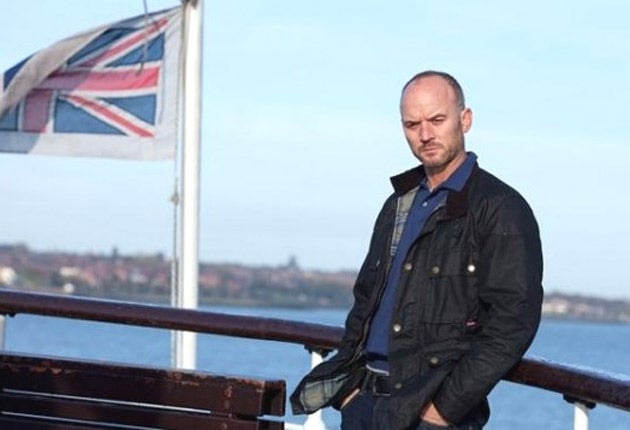Route Irish, Cannes Film Festival

Your support helps us to tell the story
From reproductive rights to climate change to Big Tech, The Independent is on the ground when the story is developing. Whether it's investigating the financials of Elon Musk's pro-Trump PAC or producing our latest documentary, 'The A Word', which shines a light on the American women fighting for reproductive rights, we know how important it is to parse out the facts from the messaging.
At such a critical moment in US history, we need reporters on the ground. Your donation allows us to keep sending journalists to speak to both sides of the story.
The Independent is trusted by Americans across the entire political spectrum. And unlike many other quality news outlets, we choose not to lock Americans out of our reporting and analysis with paywalls. We believe quality journalism should be available to everyone, paid for by those who can afford it.
Your support makes all the difference.After the comparative whimsy of Looking for Eric, Ken Loach is back in competition in Cannes with a very dark and muscular revenge thriller. Route Irish is an intricately plotted, fast-moving film with a strong political undertow. Loach and his regular screenwriter, Paul Laverty, are railing against the abuses perpetrated by Western private security contractors in Iraq. They are laying bare the obscenity of waterboarding and torture. In the final reel, though, the film lurches into vigilante territory – a Death Wish for the anti-war movement.
As the story begins, Fergus (Mark Womack), an ex-SAS officer who has been working as a private-security contractor in Iraq, is back home in Liverpool. His best friend, Frankie, has just been killed on "Route Irish", the deadly stretch of road between Baghdad airport and the Green Zone. Fergus doesn't accept the official accounts of the circumstances in which Frankie was killed.
The early scenes have a brooding intensity about then. Fergus, played by Womack with a gimlet-eyed intensity, is a driven and very bitter figure. There are fleeting flashbacks to when he and Frankie were younger. The two men were as close as brothers.
As in the best detective stories, the tenacious Fergus slowly pieces together the true circumstances in which his friend died. The key prop is a cellphone Frankie took in the aftermath of a shooting in Iraq that left several members of an innocent family dead. The film-makers make ingenious use of Skype and mobile-phone footage as Fergus struggles to unravel a very complicated mystery.
Although largely set in Liverpool, the film conveys well the stress and adrenalin rush experienced by the contractors back in Iraq. As in The Hurt Locker, we hear references to how hard it is to adjust to shopping in supermarkets back home in the West once you've been on the front line.
Loach and Laverty make it very clear how brutally the Western soldiers and contractors often treat the Iraqi people. Their real ire is reserved for the big bosses who've flouted laws and made vast fortunes from the chaos in Iraq. The film was made for a fraction of the budget of Paul Greengrass's recent Green Zone but is arguably just as effective in conveying the moral and political corruption in post-invasion Iraq.
Route Irish, though, is a surprisingly conventional thriller. The bigger picture risks becoming blurred as the film-makers concentrate on Fergus's vendetta against the men who killed Frankie. Loach is too impassioned and well-informed a film-maker to lose sight altogether of the political backcloth against which the story is being told. However, when Fergus gives a thug a taste of waterboarding or brings some Baghdad-style carnage to the leafy car park of an English countryside hotel, he is behaving not so differently from the craggy, emotionally repressed action heroes in countless other movies by far lesser directors.
Route Irish is an effective thriller but, for once, Loach risks fudging the message that he is trying to deliver.
Join our commenting forum
Join thought-provoking conversations, follow other Independent readers and see their replies
Comments